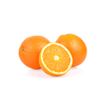Find articles on products of interest

Fresh Orange insights
Unlock the latest Fresh Orange Insights with expert news and analysis to stay ahead of market trends and capitalize on emerging opportunities.
Explore Insights filtered by market country
7351 content(s) found
Featured contents
Uncover the latest trends and significant events shaping the Fresh Orange industry.
Opinion
Explore insights from our global team of market analysts on trending Fresh Orange topics through their expert opinions and analyses.
On-the-Ground Updates
Stay updated with near real-time insights on market conditions, supply chain disruptions, and pricing changes for Fresh Orange, delivered by our on-site experts.
News
Monitor the latest developments in agricultural news, including policy updates, business trends, technological innovations, and market dynamics impacting the Fresh Orange market.
Weekly Product Updates
Receive exclusive weekly updates on Fresh Orange, provided by our global market analysts.
Report
Download premium reports that highlight major trends, emerging opportunities, and critical challenges within the Fresh Orange industry.

Trending topics
Choose a topic to explore related articles on key issues that shape decision-making in the Fresh Orange industry.

Market & Price Trends
Stay informed on local and global agricultural market trends, price movements, and industry events that affect your business

Sustainability & Environmental Impact
Gain insights into sustainable agricultural practices and explore the best methods to minimize environmental impact in your agribusiness

Regulation & Compliances
Learn about key trade policies, legal requirements, and compliance considerations that impact global agricultural trade

Innovation & Technology
Discover how the latest innovations in technology are reshaping agri-food supply chains around the world

Supply Chain Management
Discover proven strategies to improve efficiency, reduce costs, and streamline operations throughtout your agri-food supply chain

Emerging Market Opportunities
Be the first to explore new market opportunities and understand how they can affect your agribusiness

Food Safety & Quality
Learn the top global practices for food safety and quality control from production and processing to storage and transport across the supply chain
Related products of Fresh Orange
Discover a selection of insights of related product within the Fresh Orange category. Tap into detailed content and practical intelligence crafted by our in-house market analysts.
Related categories of Fresh Orange
Take a look at the related categories for Fresh Orange. Click on any category to read a curated selection of insights specifically designed to address your business needs.
Market countries of Fresh Orange
Choose a country to find Fresh Orange insights of the country.
Popular Fresh Orange selection
Interested in Fresh Orange? Explore the top attributes and options to gain deeper insights into your product of interest.
Variety
Valencia | Navel | Navel - Navelate (=Navel Late) | Navel - Navelina (=Dalmau) | Navel - Lane Late (=Summer Navel) | Navel - Cara Cara (=Pink Navel=Red Navel=Power Orange) | Other Orange - Salustiana | Navel - Washington Navel (=Bahia) | Valencia - Delta (=Delta Seedless=Delta Valencia) | Midknight Valencia
Processed style
Fresh (=Chilled) | Dried | Frozen | Waxed | Frozen - IQF (=Individual Quick Freezing) | Dried - FD (Freeze Drying) | Dried - AD (Air Drying) | Dried - SD (Spray Drying) | Candied
Color
Orange | Bright Orange | Green | Yellow | Red | Brown | Golden | White | Box 10 kg
By clicking “Accept Cookies,” I agree to provide cookies for statistical and personalized preference purposes. To learn more about our cookies, please read our Privacy Policy.



.jpg)














